Although Wotan, the ruling God, governs the giants, people and dwarves with the aid of treaties and agreements engraved on the staff of his spear, he himself has broken these agreements. Wotan had promised to give the Godess Freia to two of the giants – Fasolt and Fafner – as payment for building Valhalla, the home of the gods, but when work was completed he refused to surrender Freia, the Goddess of Youth, whose golden apples ensure the gods eternal life. So instead of Freia, the giants demanded the treasure of Alberich the Nibelung. Alberich had stolen the gold of the Rhine from the three Rhinemaidens and fashioned a Ring with magic powers: its possessor will attain power over the world if he rejects love. Wotan is not ready to abandon love but desires the power that the Ring will provide. He takes it from Alberich by force, the latter placing a deadly curse on the Ring. Wotan gives Alberich's treasure to the giants, but only surrenders the Ring when the wise Godess Erda, the mother of the three Norns who control the fate of the world, warns him of the impending twilight of the gods. Alberich's curse begins to take immediate effect. Fafner kills his brother Fasolt in order to possess the Ring and all its treasures. With the help of a magic helmet fashioned by Alberich's brother Mime, Fafner transforms himself into a fearsome dragon and hides in a cave deep in the woods. Now Wotan attempts to ensure his own safety. Nine Valkyries (led by Brünnhilde, his daughter by Erda) help Wotan raise an army of warriors who will help resist Alberich's powers even if the Nibelung one day retrieves the Ring. At the same time Wotan must influence events in such a way that the Ring falls into the hands of a hero who has grown up free of the will of the gods and who is not connected to any agreements, even with the gods themselves. Under the name of Walse, Wotan falls in love with a mortal woman and she bears him twins – Siegmund and Sieglinde who from their youth live apart from one another. Alberich has also consorted with a mortal woman whom he lured with his gold.
Act I
A fierce storm is raging. Siegmund, pursued by enemies, seeks refuge in a house built around the trunk of a mighty ash-tree. This is the home of Sieglinde who is married to the brutal Hunding. Sieglinde does not realise that the wounded and exhausted stranger is her brother. While she is caring for him an unmistakably sexual tension develops between the two. Hunding returns and, in spite of his distrust of the stranger, offers him hospitality. Siegmund gives his name as Wehwalt (Weh meaning "sorrow"), son of Wolfe, and after some hesitation tells his story. He had grown up in the forest with his parents and his twin sister. Returning home one day he found that marauders had burnt down their hut, killed his mother and abducted his sister. Some years later he had become separated from his father, who also disappeared, leaving him alone in the world. Siegmund has tried to mix with other men but has always been rejected as an outsider. He is now fleeing from a clan whom he had found trying to marry a girl off to a man she did not love; Siegmund killed her brothers and lost his weapons fleeing from her relations. Hunding now reveals that he himself is a kinsman of this clan. Siegmund will be protected by the laws of hospitality for the night, but in the morning Hunding will fight him to avenge his murdered kinsmen. Left alone, Siegmund cries out for help to his father Wälse, who had promised that in the hour of his greatest need he would find a sword. Sieglinde returns, having drugged Hunding with a sleeping draught. She recounts how, when her abductors were marrying her off to Hunding, a mysterious stranger had appeared and plunged a sword into the trunk of the ash-tree. No-one has yet been able to draw it out, but she now believes that Siegmund is her saviour and that the sword will be his. As the door of the house flies open to reveal the forest transfigured by the arrival of spring, the love which has grown up between the two breaks out uncontrollably. Siegmund reveals that he is the son of Wälse and draws forth the sword, which he names Notung (Not meaning "need" or "necessity"). Sieglinde discloses that she is his own twin sister. Overcome, the two fall into a passionate embrace.
Act II
It is the following morning. Siegmund and Sieglinde have fled from Hunding into the mountains. Wotan orders his daughter, the Valkyrie Brünnhilde, to prepare for battle in order to help Siegmund kill Hunding in their coming fight. Fricka, Wotan’s consort, now approaches. As the guardian of marriage, she demands the death of Siegmund, who is guilty of both adultery and incest. When Wotan refuses to abandon his "free hero", Fricka lays bare his self-deception: Siegmund is in no sense independent since his fate has been preordained by Wotan, who has even indirectly led him to find the magic sword. Wotan, as guardian of oaths, is compelled to punish Siegmund and must now promise to leave him to his fate without any protection. He must also forbid Brünnhilde to aid him in his fight against Hunding. Once Fricka has left, Wotan openly expresses his despair, and in the course of a long monologue explains to Brünnhilde the story of the Ring and the curse attached to it. When Brünnhilde shows her reluctance to abandon Siegmund, Wotan threatens her with his terrible anger; he orders her to obey, and storms off. Brünnhilde sadly withdraws. Siegmund and Sieglinde now arrive; Sieglinde, half-crazed with fear, sinks into an exhausted sleep. Brünnhilde appears before Siegmund to announce his forthcoming death and his reception among the heroes of Valhalla. Siegmund, however, refuses to follow her into Valhalla if Sieglinde cannot accompany him. Brünnhilde is deeply moved that a man can value love higher than the everlasting bliss of Valhalla. She is overcome with compassion as Siegmund, in a fit of despair, prepares to kill his sleeping sister after learning that she bears his child. Brünnhilde prevents him and promises to support him despite Wotan’s command. But in the fight Wotan himself unexpectedly intervenes. His spear shatters the magic sword, Siegmund is killed by Hunding, and Brünnhilde, gathering up the pieces of the sword, hastily leads Sieglinde away to safety. Hunding falls dead at a contemptuous gesture from Wotan, who then hurries after Brünnhilde to punish her disobedience.
Act III
The Valkyries gather together on a rocky mountain top where they are preparing to take the bodies of the fallen heroes to Valhalla on their winged horses. Brünnhilde arrives with Sieglinde, seeking their help but the Valkyries refuse to defy Wotan. Brünnhilde prophesies that Sieglinde will give birth to "the noblest hero in the world" – Siegfried. She gives her the fragments of the sword and advises her to take refuge in the forest to the east where Fafner guards his treasure and where Wotan will not follow her. Brünnhilde then comes forward to confront her father who, in a furious rage, pronounces her punishment: banished from Valhalla, stripped of her divinity, she will lie asleep on this rock and will belong to the man who finds her and awakens her. Horrified, the eight Valkyries scatter. Brünnhilde tries to justify her disobedience. She had intended to carry out Wotan’s real wishes, which Fricka had forced him to renounce against his will.
She describes, too, how she had been so moved by wonder and pity at Siegmund’s predicament and by his love for Sieglinde that she could not refuse him her help. Wotan’s anger is calmed, and he grants Brünnhilde’s pitiful prayer to be awoken only by a hero: with a kiss on the eyes, he plunges her into a profound sleep and then summons Loge, the god of fire, to the rock to surround the sleeping Valkyrie with a ring of magic fire which can only be penetrated
Prior history
During the lengthy time that has passed since the gods entered Valhalla at the end of Das Rheingold, Fafner has used the Tarnhelm to assume the form of a dragon, and guards the gold and the ring in the depths of the forest. Wotan has visited Erda seeking wisdom, and by her has fathered a daughter, Brünnhilde; he has fathered eight other daughters, possibly also by Erda. These, with Brünnhilde, are the Valkyries, whose task is to recover heroes fallen in battle and bring them to Valhalla, where they will protect the fortress from Alberich's assault should the dwarf recover the ring. Wotan has also wandered the earth, and with a woman of the Völsung race has fathered the twins Siegmund and Sieglinde, who have grown up separately and unaware of each other. From the Völsungs Wotan hopes for a hero who, unencumbered by the gods' treaties, will obtain the ring from Fafner.
Act 1
As a storm rages, Siegmund finds shelter from his enemies in a large dwelling built around a massive ash-tree. Unarmed and wounded, he collapses with exhaustion. Sieglinde enters; she tells Siegmund that she is the wife of Hunding, and that he may rest here until Hunding's return. As they talk, they look at each other with growing interest and emotion. Siegmund gets ready to leave, telling Sieglinde that misfortune follows him and he does not want to bring it on her; she replies that misfortune dwells with her already.
Hunding returns, and questions Siegmund's presence. Calling himself Wehwalt ("woeful"), Siegmund explains that he grew up in the forest with his parents and twin sister. One day he found their home burned down, his mother killed and his sister gone. Recently he fought with the relatives of a girl being forced into marriage. His weapons were destroyed, the bride was killed, and he was forced to flee. Hunding reveals that he is one of Siegmund's pursuers; Siegmund may stay, he says, but they must fight in the morning. Before leaving, Sieglinde gives a meaningful glance to a particular spot on the tree in which, the firelight reveals, a sword is buried to the hilt.
Sieglinde returns, having drugged Hunding's drink. She reveals that she was forced into the marriage and that during their wedding feast, an old man appeared and plunged a sword into the trunk of the ash tree which neither Hunding nor any of his companions have been able to remove. She is longing for the hero who will draw the sword and save her. When Siegmund expresses his love for her, she reciprocates, and when he speaks the name of his father, Wälse, she recognises him as Siegmund, and realises that the sword was left for him. Siegmund then draws the sword from the tree. She reveals herself as Sieglinde, his twin sister. Siegmund names the sword "Nothung" and declares that it will be her protection. The two sing of their passionate love for each other, as the act ends.
Act 2
On a high mountain ridge, Wotan instructs Brünnhilde, his Valkyrie daughter, to protect Siegmund in his forthcoming battle with Hunding. Fricka arrives, and in her role as goddess of family values demands that Siegmund and Sieglinde be punished for their adultery and incest. She scorns Wotan's argument that he requires Siegmund as a "free hero", who can further his plans to recover the ring from Fafner, uninhibited by Wotan's contracts. She retorts that Siegmund is not free but is Wotan's pawn, whose every move the god seeks to direct. Defeated by Fricka's argument, Wotan reluctantly agrees that he will not protect Siegmund. After Fricka leaves, the troubled Wotan gives Brünnhilde the full story, and with great sorrow rescinds his earlier instruction; he orders her to give the victory to Hunding, and then departs.
Siegmund and Sieglinde now enter, and Sieglinde faints, consumed with guilt and exhaustion. Brünnhilde tells Siegmund of his impending death; he refuses to follow Brünnhilde to Valhalla when she tells him Sieglinde cannot accompany him. Siegmund still believes that his father's sword will assure him of victory over Hunding, but Brünnhilde tells him it has lost its power. Siegmund threatens to kill both Sieglinde and himself. Much moved, Brünnhilde decides to defy her father and grant victory to Siegmund.
Hunding's call is heard; he arrives, and attacks Siegmund. Under Brünnhilde's power Siegmund begins to overpower Hunding, but Wotan appears and shatters Siegmund's sword with his spear. Hunding then stabs him to death. Brünnhilde gathers up the fragments of the sword and flees on horseback with Sieglinde. Contemptuously, Wotan strikes Hunding dead, and swearing that Brünnhilde will be punished for her defiance, sets out in pursuit of her.
Act 3
The Valkyries congregate on the mountain-top, each carrying a dead hero and chattering excitedly. Brünnhilde arrives with Sieglinde, and begs her sisters for help, but they dare not defy Wotan. Sieglinde tells Brünnhilde that without Siegmund she no longer wishes to live. Brünnhilde tells Sieglinde that she is pregnant by Siegmund, and urges her to remain alive for her child's sake, and to name the child Siegfried. Brünnhilde gives the fragments of the sword Nothung to Sieglinde, who thanks her for her loyalty and comfort, and resolves to save the child. As she departs, Wotan is heard approaching with great wrath.
When Wotan arrives, the Valkyries vainly try to hide Brünnhilde. He faces her and declares her punishment: she is to be stripped of her Valkyrie status and become a mortal woman, to be held in defenceless sleep on the mountain, prey to any man who finds her. The other Valkyries protest, but when Wotan threatens them with the same, they flee. In a long discourse with Wotan Brünnhilde explains that she decided to protect Siegmund knowing that this was Wotan's true desire. Wotan consents to her request that he surround her resting place with a circle of fire that will protect her from all but the bravest of heroes. He bids her a loving farewell and lays her sleeping form down on a rock. He then summons Loge, the demigod of fire, who creates a circle of flames around her. Before slowly departing, Wotan pronounces that anyone who fears his spear shall never pass through the fire.


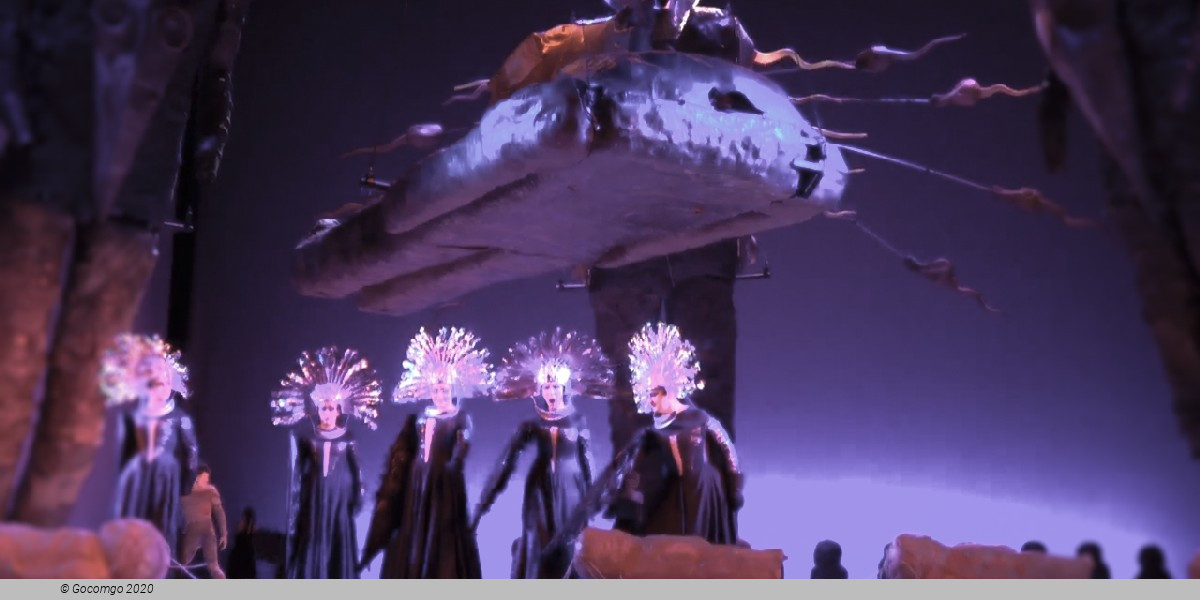
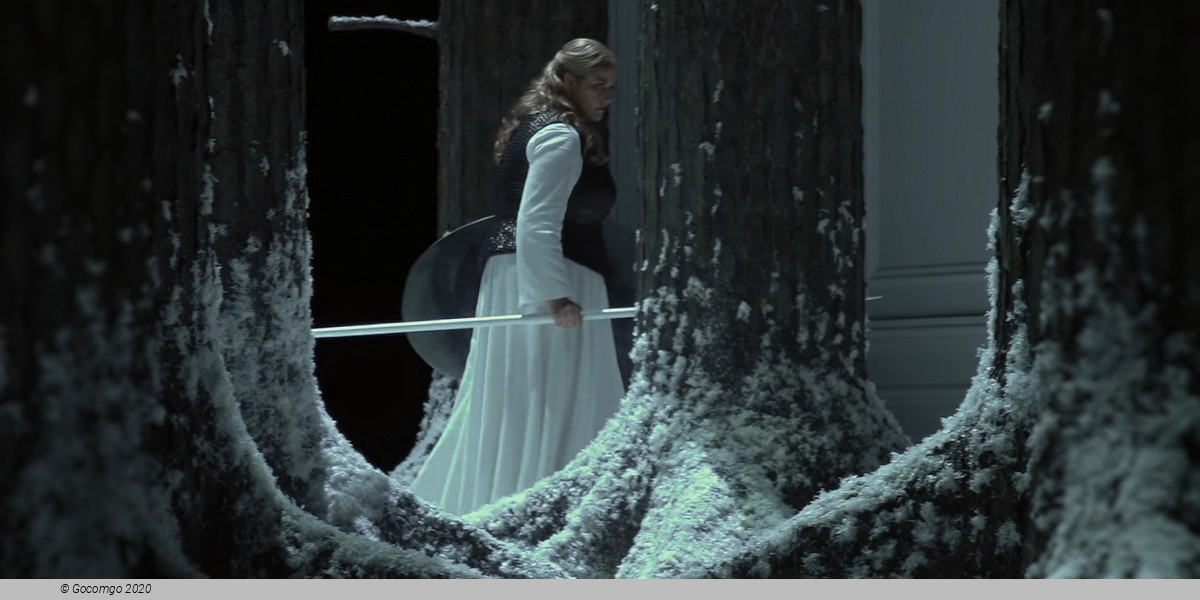
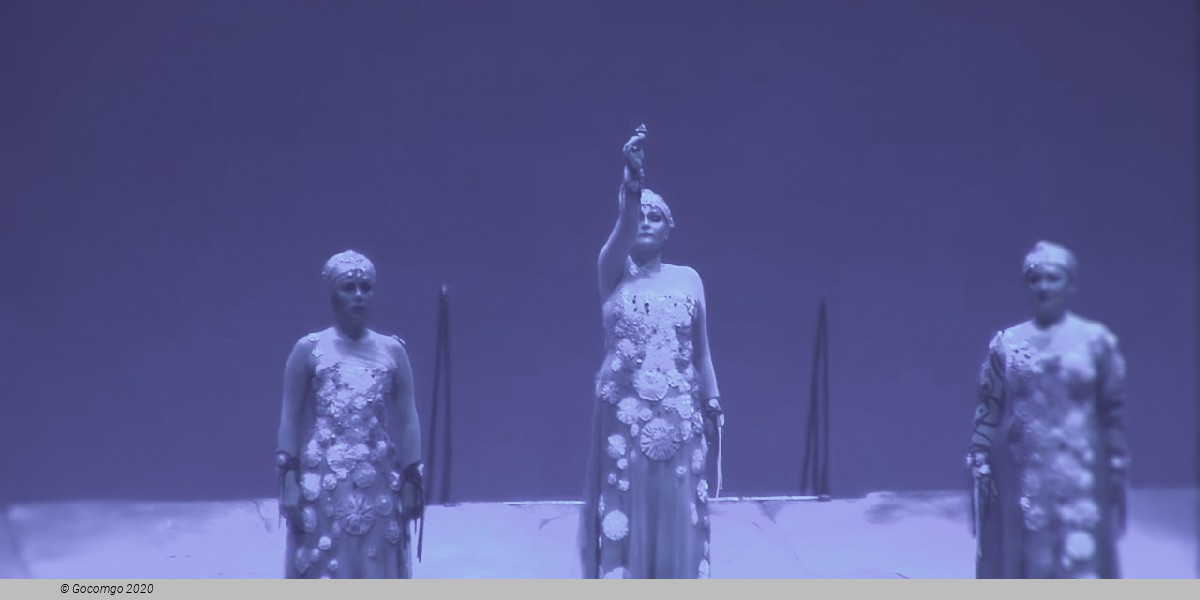
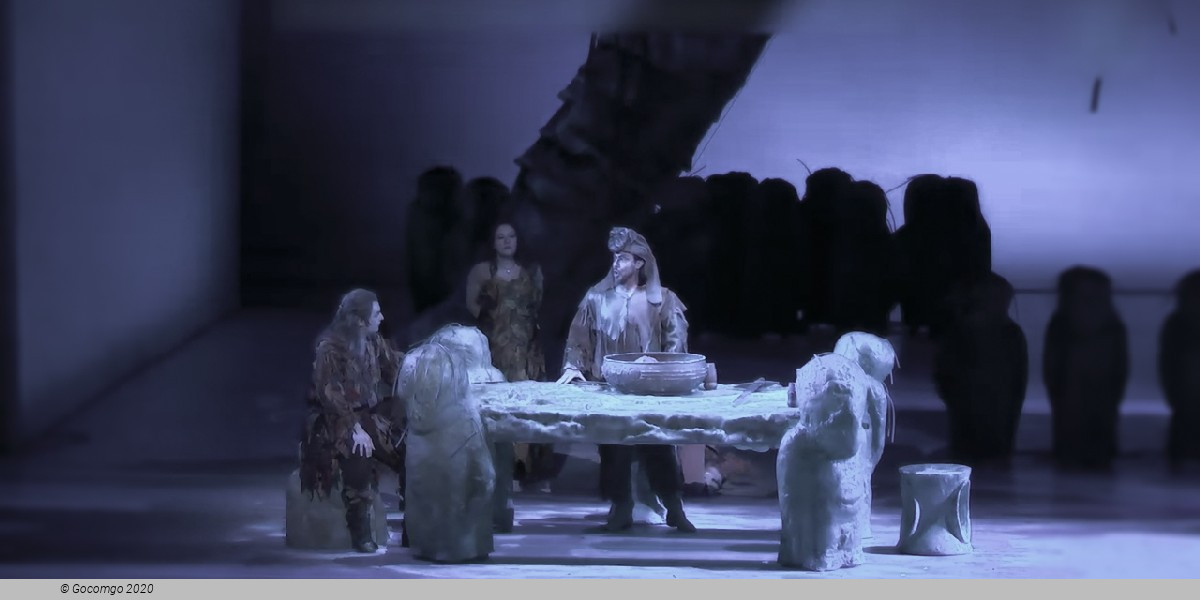
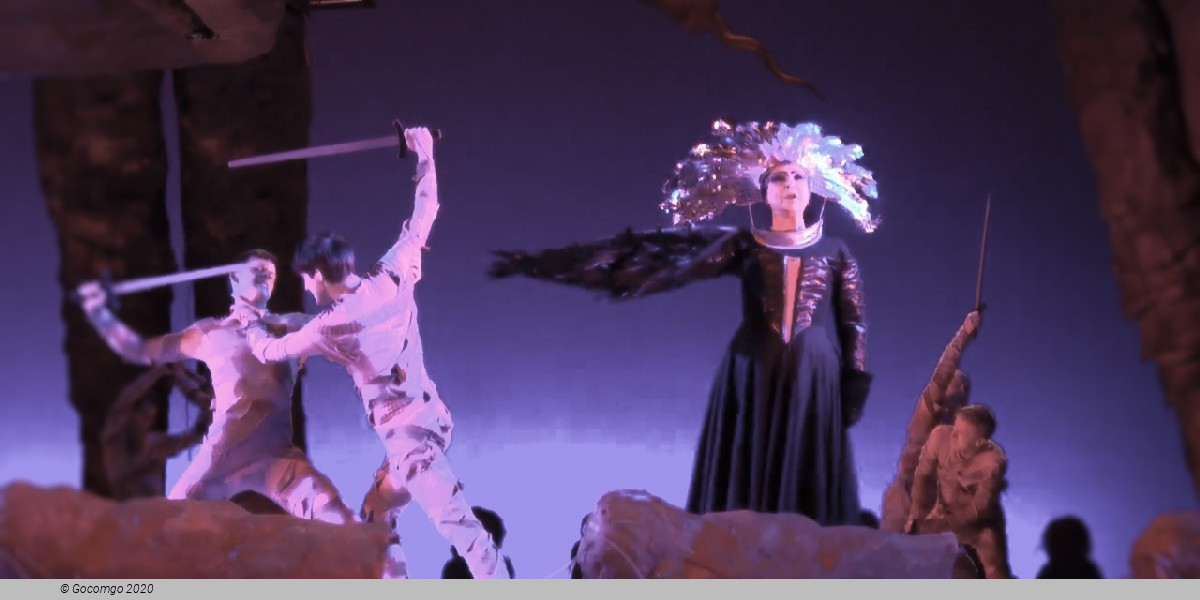
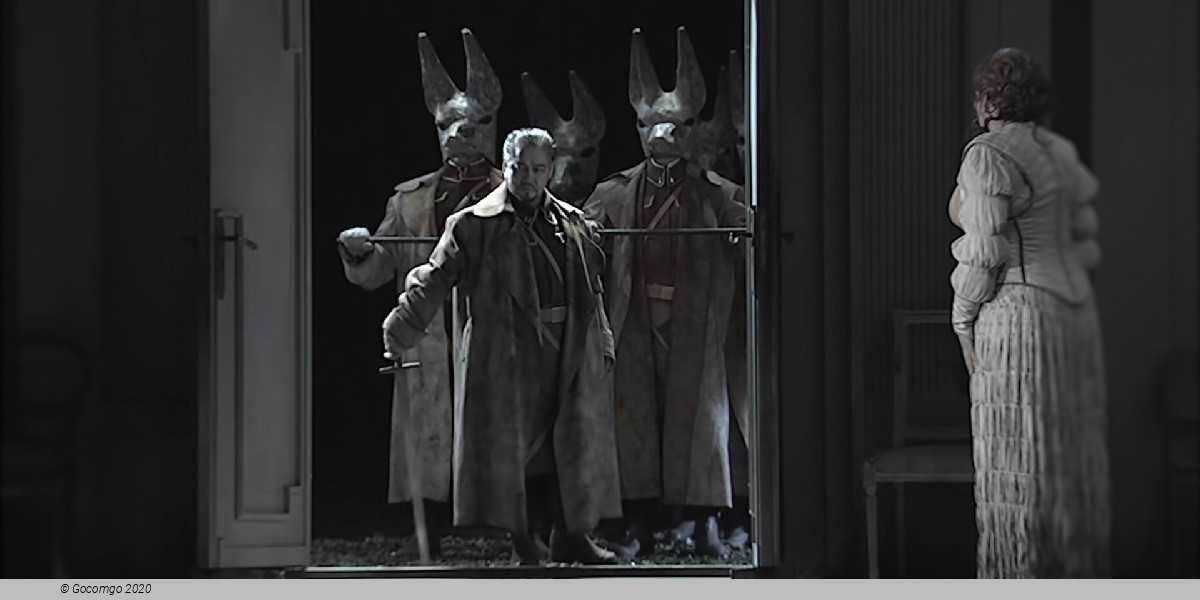
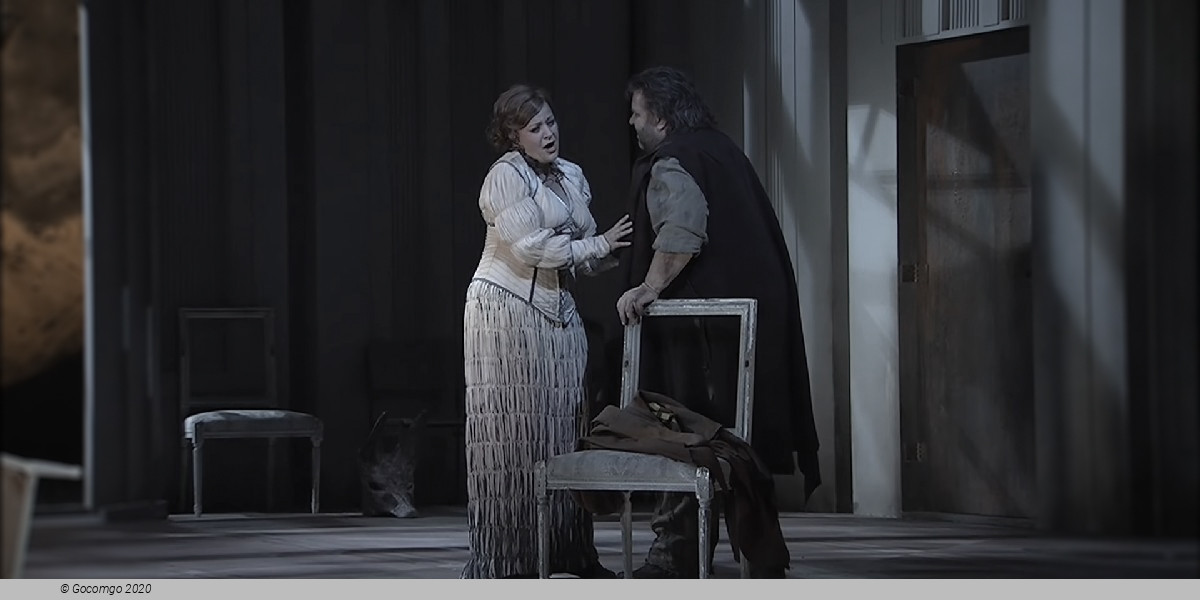
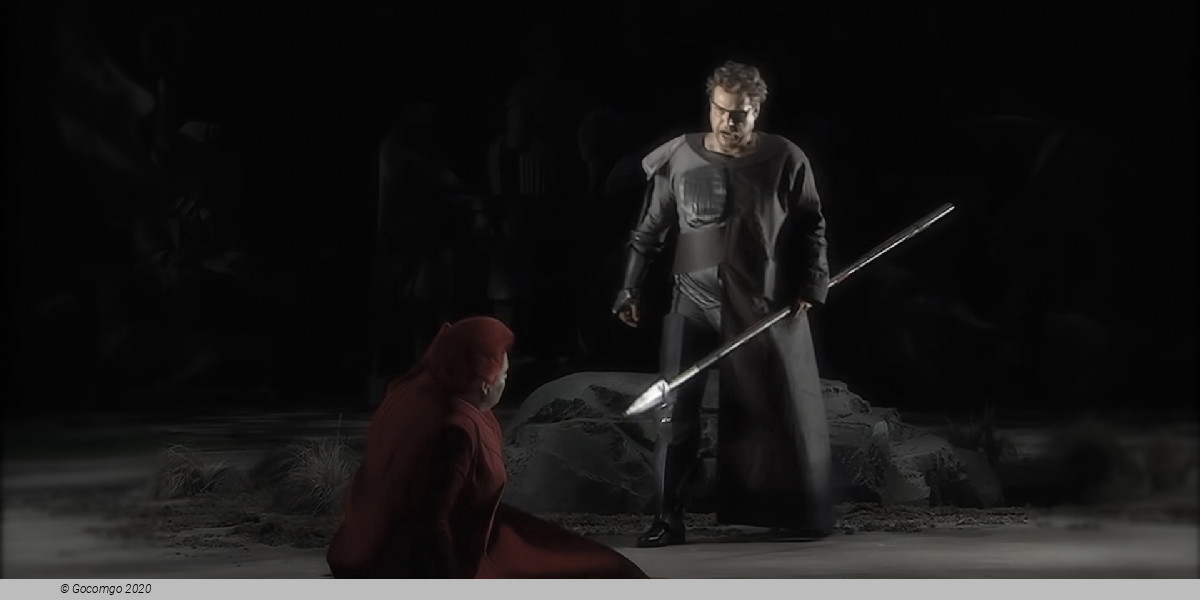
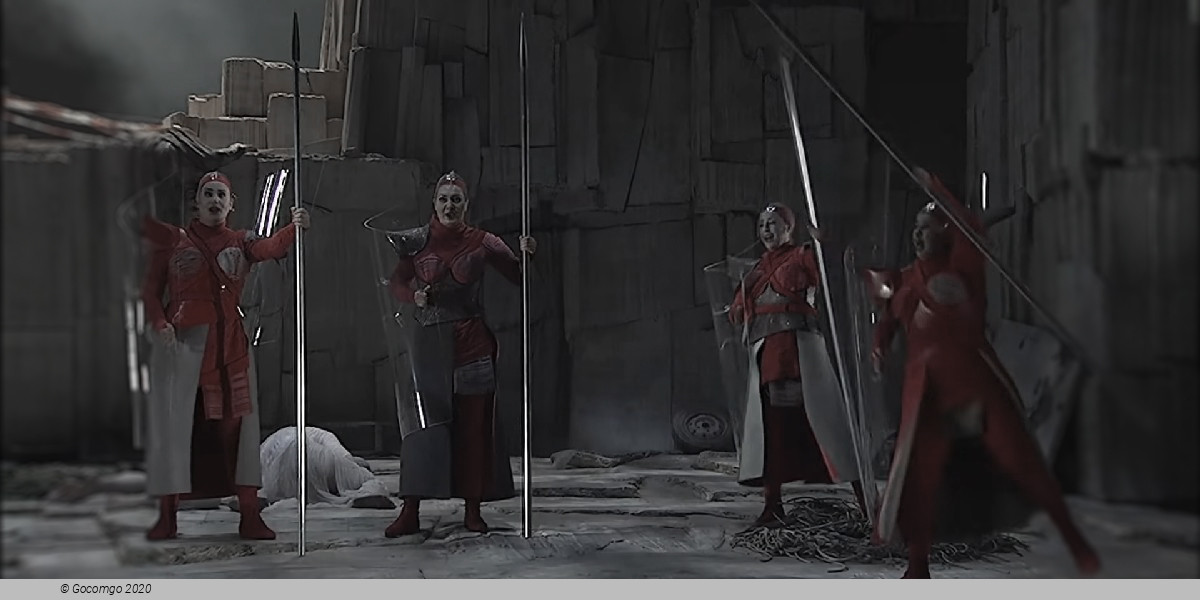
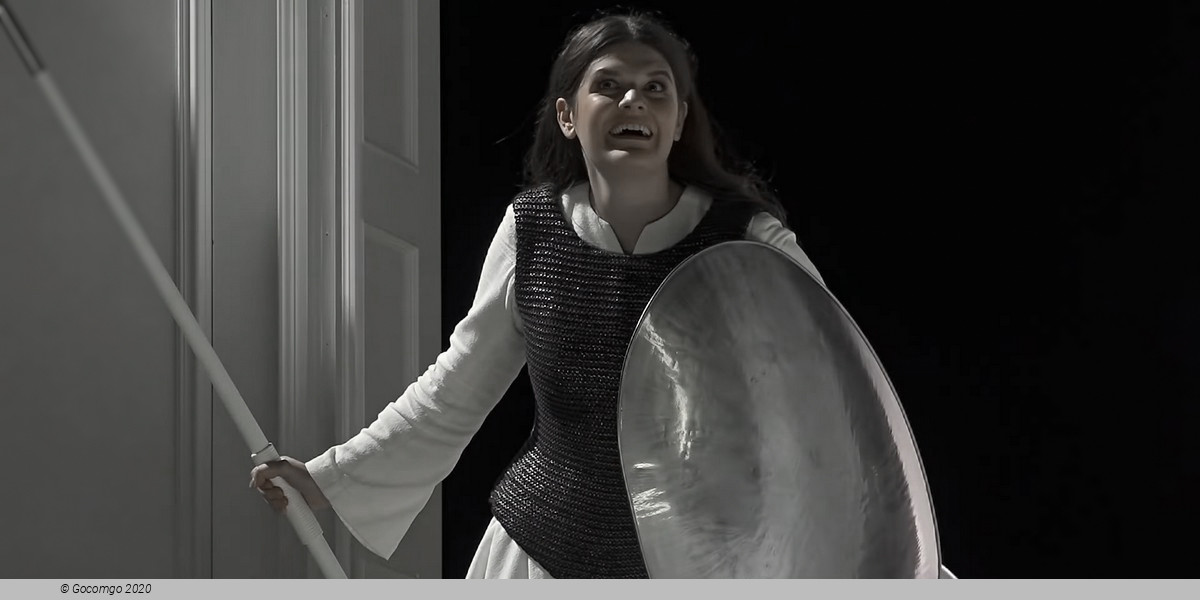
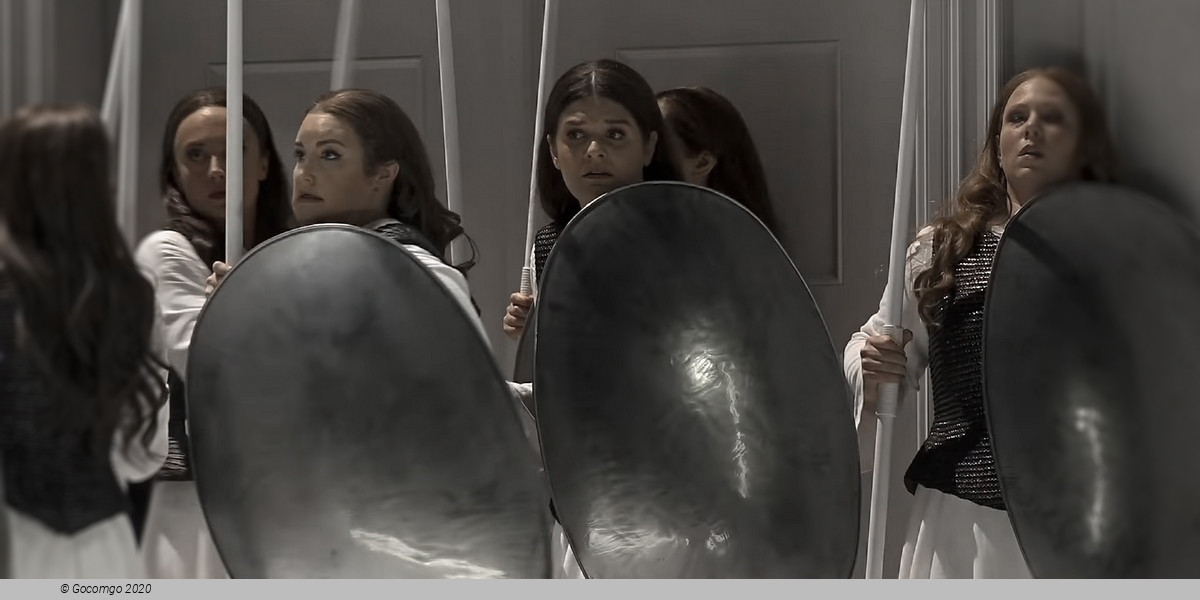
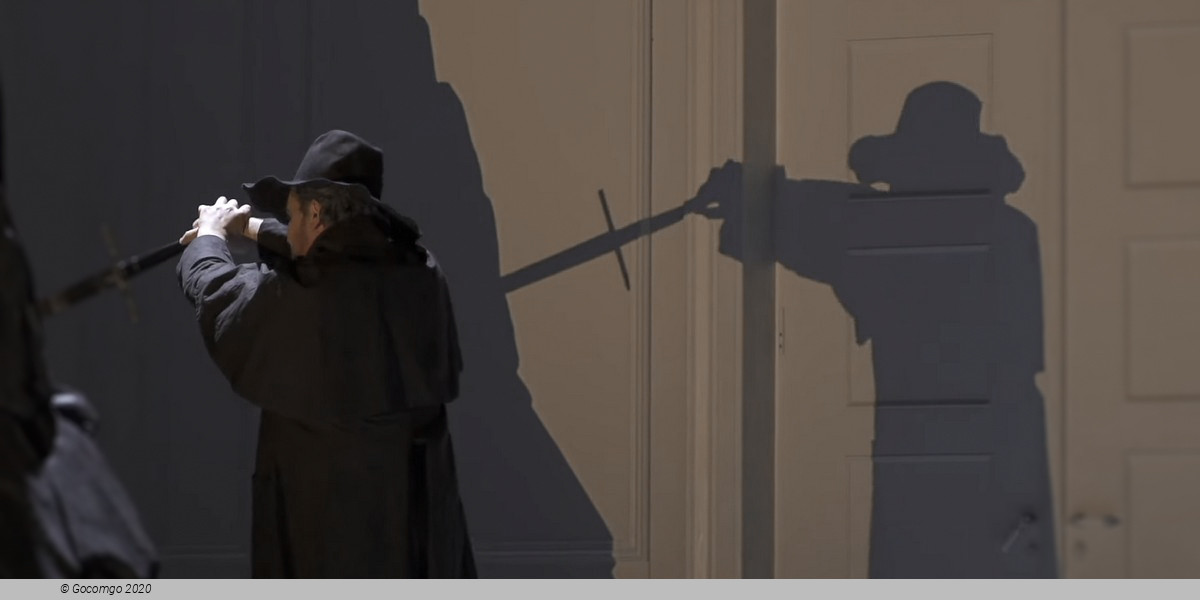
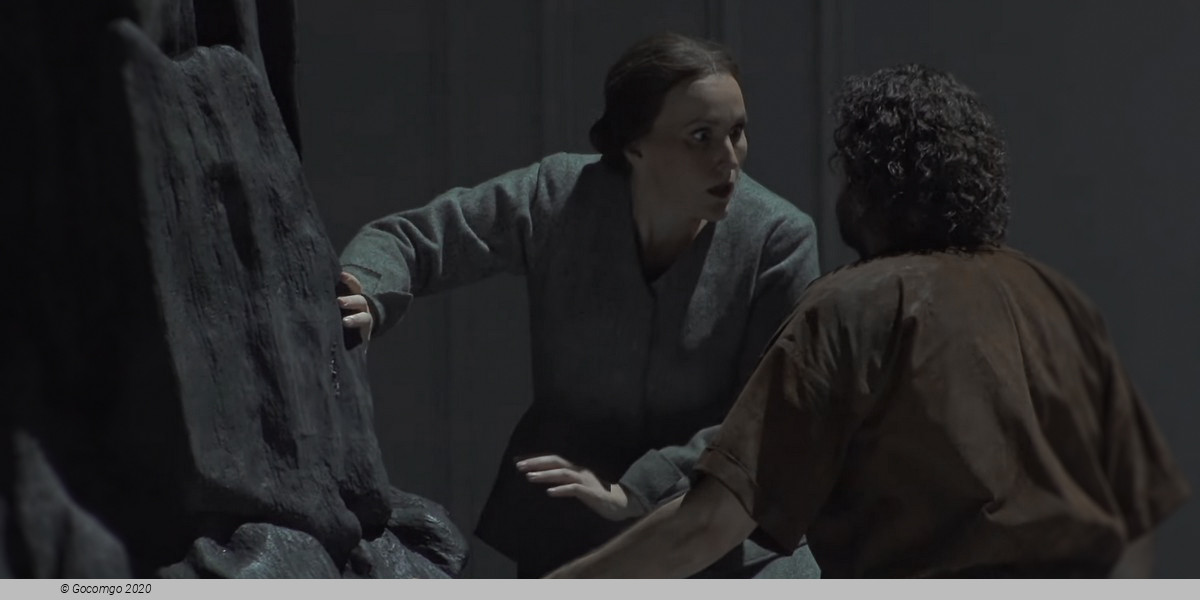
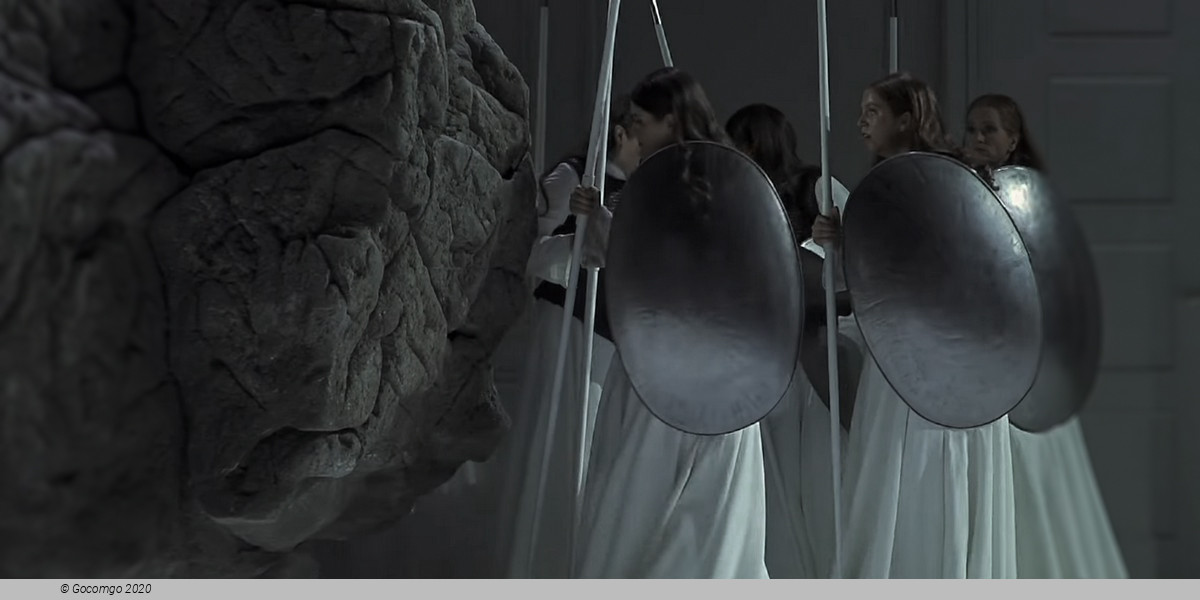
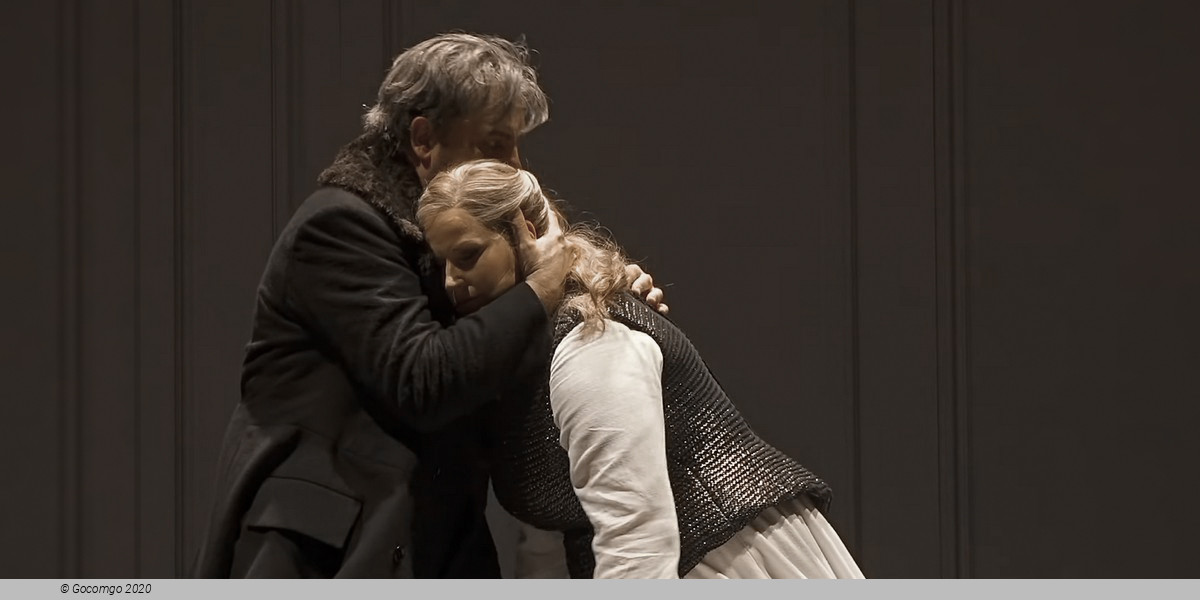
 1 Theatre Square
1 Theatre Square